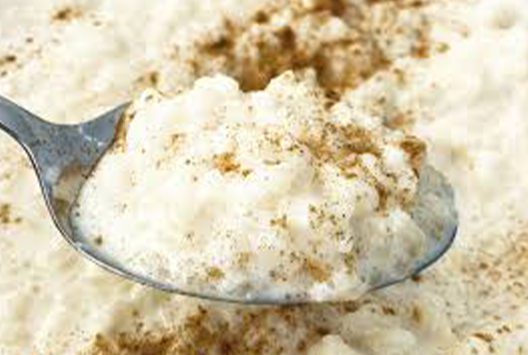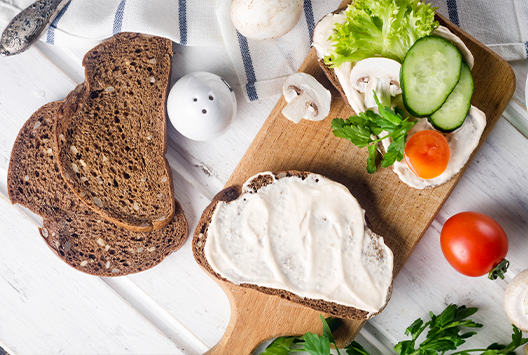
Rice Pudding: Is It A Healthy Snack?
Similar
Rice pudding has been a popular dessert for many years, but is it a healthy snack option?
Rice pudding is a creamy, sweet treat made from rice, milk, sugar, and other ingredients. It is a comfort food that people of all ages enjoy. However, when it comes to healthy eating, many people are not sure if rice pudding is a good choice.
Let's take a closer look at its nutritional aspects.
What is rice pudding?
Rice pudding is a traditional dessert that has been around for centuries. It is made by cooking rice in milk or cream and adding sugar, vanilla, mastic or cinnamon, and other ingredients. The mixture is then baked or boiled until it becomes thick and creamy. Rice pudding can also be served hot or cold, and typically has a smooth, custard-like texture.
Nutritional value of rice pudding
Rice pudding is a high-calorie dessert rich in carbohydrates, fat, and sugar. A serving of rice pudding typically contains around 200-300 calories, most of which come from carbohydrates and sugar. While rice pudding does have some protein and calcium, it is not a significant source of either of these nutrients.
Rice pudding is also high in fat, with most recipes calling for whole milk or heavy cream. While these ingredients contribute to the pudding's creamy texture, they also add a significant amount of saturated fat to the dish. Saturated fat can increase cholesterol levels and increase the risk of heart disease.
Is rice pudding a healthy snack option?
While rice pudding is not a low-calorie or low-fat snack, it has some nutritional benefits. Rice pudding is a good source of carbohydrates, which provide energy for the body. Carbohydrates are also crucial for brain function and can help improve mood and cognitive function.
Rice pudding also contains some calcium, which is vital for bone health. Calcium is necessary for building strong bones and teeth. However, the amount of calcium in rice pudding is not significant enough to make it a primary source of this nutrient.
Rice pudding can also be made with healthier ingredients, such as low-fat or non-dairy milk alternatives. By substituting these ingredients, the fat and calorie content of the pudding can be significantly reduced. Adding fresh fruit or nuts to the pudding can also increase its nutritional value and provide additional vitamins and minerals.
Should you eat rice pudding every day?
From a nutritional standpoint, having rice pudding daily may not be the best idea. Rice pudding is usually high in sugar and calories, resulting in weight gain and other health problems if consumed excessively. It is also low in essential nutrients such as protein, vitamins, and minerals. Therefore, consuming rice pudding in moderation is recommended as part of your balanced and varied diet.
Rice pudding is the ultimate comfort food; there’s no denying that
Although rice pudding is not a low-calorie or low-fat snack option, it does have some nutritional benefits. Rice pudding is a good source of carbohydrates and can provide energy for the body. It also contains some calcium, which is essential for bone health. However, consuming rice pudding in moderation is important, as is choosing healthier ingredient options when possible. By doing so, rice pudding can be enjoyed as a delicious and nutritious snack.
Baladna is a Qatari-owned company that offers genuine, fresh, and high-quality dairy products. From yoghurt to rice pudding and more, we have the freshest products to deliver to your doorstep. Check out our products today!



